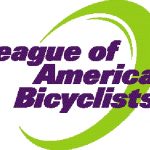 According to the National Highway Traffic Safety Administration, 718 bicyclists were killed and 51,000 were injured in crashes with motor vehicles in 2009. For their own and others safety, operators of motor vehicles are required to follow the rules of the road, to properly maintain their vehicles, understand avoidance tactics and practice defensive driving. All of which is taught by different means throughout the nation (thinks Driver’s Ed class when you where 15, or STOP class if you got a violation). But what about cyclist? We are expected, and rightfully so, to follow the same rules of the road as operators of motor vehicles. So where do we get our education?
According to the National Highway Traffic Safety Administration, 718 bicyclists were killed and 51,000 were injured in crashes with motor vehicles in 2009. For their own and others safety, operators of motor vehicles are required to follow the rules of the road, to properly maintain their vehicles, understand avoidance tactics and practice defensive driving. All of which is taught by different means throughout the nation (thinks Driver’s Ed class when you where 15, or STOP class if you got a violation). But what about cyclist? We are expected, and rightfully so, to follow the same rules of the road as operators of motor vehicles. So where do we get our education?
“Lucky for us, the League of American Cyclist’s Smart Cycling curriculum and their trained nationwide network of League Cycling Instructors (LCIs) are educating new and returning riders with the vital traffic skills needed to prevent accidents in recreational and traffic situations.” – American Bicyclist. In addition to wearing your helmet, education is your first line of defense.” The Safe Cycling curriculum and LCIs help ensure that cyclist, whether riding for transportation, fun or fitness, have a common understanding of how to ride safely and possess a base line of competence.”
And the city of Lincoln now has 22 LCIs, with nine getting certified just this weekend. A real feather in the cap for a community our size. So, what does that mean for us? One, better educated riders. Beyond teaching new riders, LCIs must also focus on returning and even experienced riders. Once learned, riding a bicycle is so easy and accessible that we often overlook the need to learn and continually practice safe riding skills. Being trained to ride safely is part of sharing the road, especially since most street networks aren’t designed to be bike-friendly.
To find out more or to learn how our own LCIs can help with you, your school, or your work place, you can contact Mike Heyl [email protected], Damon Hershey [email protected], or any of us at BicycLincoln.


failed to mention, the funding for Lincoln’s LCI training was provided by a “SPARK” grant courtesy of the Community Health Endowment